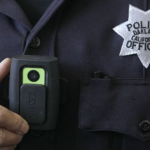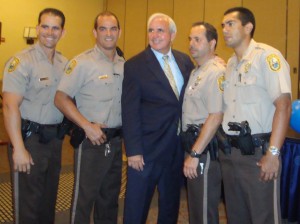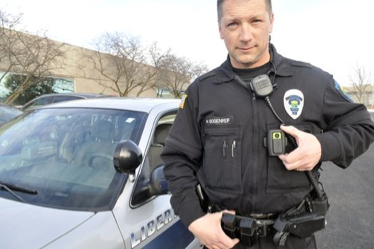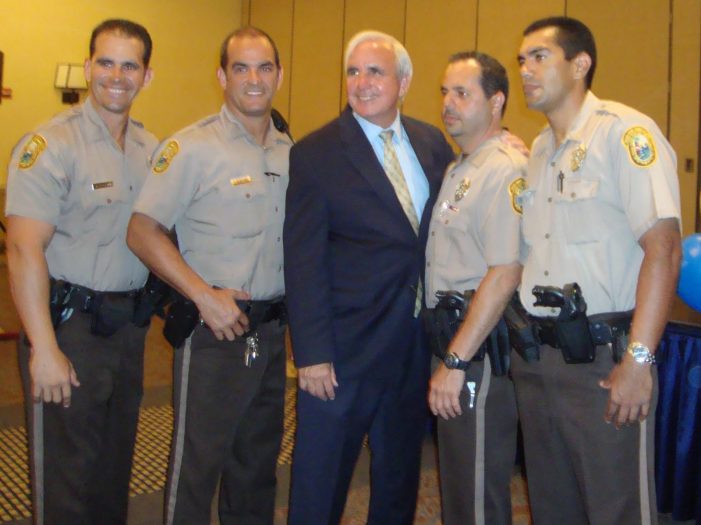The violence that erupted in Ferguson — as well as the police shooting that started it — has refueled  the debate about body cameras on police officers, including in Miami-Dade, where the mayor and commission have set $1 million aside in this year’s tight budget to equip 500 county cops with video recorders worn on their vests.
the debate about body cameras on police officers, including in Miami-Dade, where the mayor and commission have set $1 million aside in this year’s tight budget to equip 500 county cops with video recorders worn on their vests.
Ladra is okay with that, principally because it not only protects rowdy teenagers and lead foot drivers from overzealous officers, but it could protect cops from lying opportunists who just make stuff up.
“If that officer had a camera on, those things that are happening in Ferguson, wouldn’t be happening,” Miami-Dade Mayor Carlos “Cry Wolf” Gimenez told the boys on The Gray Zone radio show Tuesday morning, referring to the violence that erupted in Missouri Monday after the grand jury decision not to indict Ferguson Police Officer Darren Wilson, who shot and killed Michael Brown, 18, under arguably questionable circumstances.

“We would have known exactly what transpired between Mr. Brown and that officer and we wouldn’t be going through this,” Gimenez explained. “That is why I a very keen on that and am going to continue to make sure our police officers are on the cutting edge of technology to protect them, the police officers.
“Body cameras will save a community from these issues. They will demonstrate with visual evidence exactly what transpired between a police officer and a subject,” he said. “In every case where we’ve had this kind of violence, of demonstrations, its always been a case where witnesses say one thing and police say something else or there is evidence that says that maybe what the officer is saying was not true.
“I was here during the McDuffie riots. Everybody knows what happened here in the 1980s,” said Gimenez, who Ladra thinks was a city of Miami fireman at the time four Miami cops were acquitted in the beating death of Arthur McDuffie.
“I saw it firsthand. If we had had a camera then, (A) Mr. McDuffie would be alive today and (B) we would not have had had to suffer I think it was $1 billion of damage and… I think we had close to 20 people who were killed.”
Gimenez stressed that body cameras protect good cops and bad cops. “If you are a police officer that’s inclined to do something against procedure, now that you have a body camera, you will say, ‘No I can’t do this.’ And I’m not saying it’s happened.” Yeah, mayor, you kinda did. But we’ve seen it happen.
More likely, he said, “there is restraint by the subjects themselves who now they know they are being recorded.” He offered statistics that show that body cameras reduce complaint s by 80 percent and that among the complaints that continue, 93% end up sustaining the officer’s story (although I think that later one is the clearance rate for IA cases now anyway).
s by 80 percent and that among the complaints that continue, 93% end up sustaining the officer’s story (although I think that later one is the clearance rate for IA cases now anyway).
Ladra’s own research shows that the effect on complaints is, indeed, very significant. One of the only studies, using the Rialto, CA, Police Department in 2012, showed that even with only half the patrol officers wearing cameras on any given shift, there was an 88 percent drop in the number of all complaints filed compared to the 12 months before the study. They went from 24 complaints to three.
Use of force incidents were also cut by more than half — from 61 to 25 in the same compared time periods.
There’s more. Please press this “continue reading” button to “turn the page.”
Pages: 1 2

